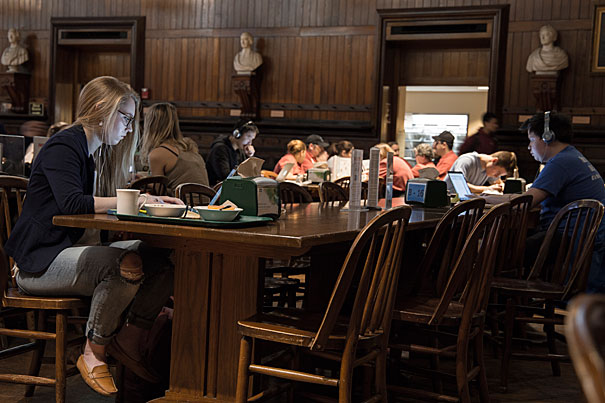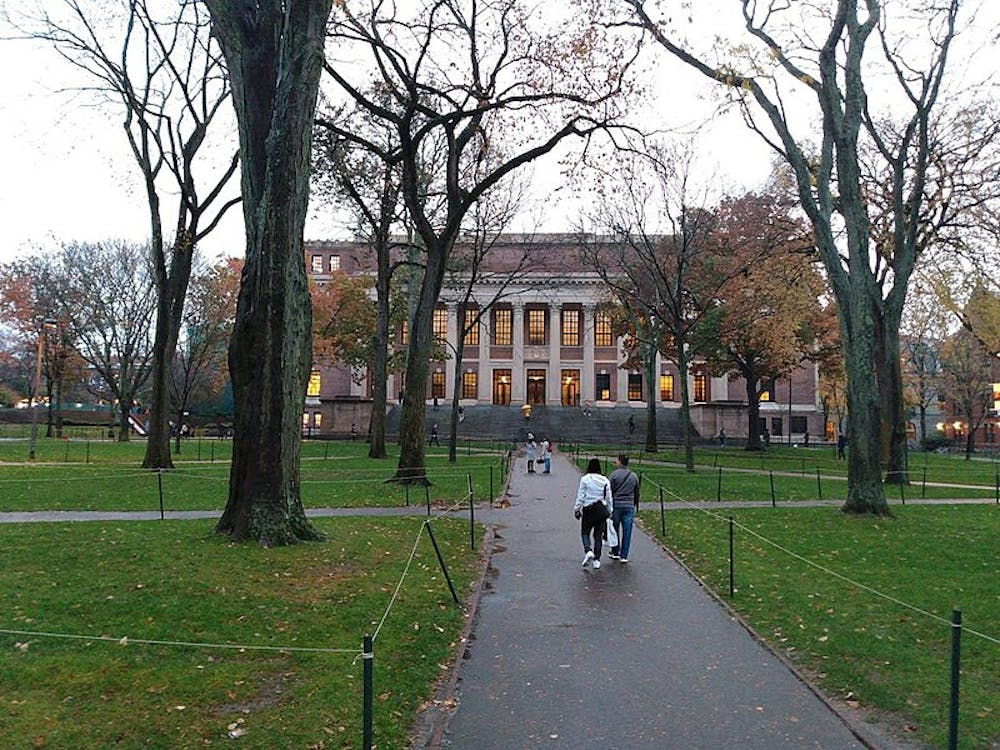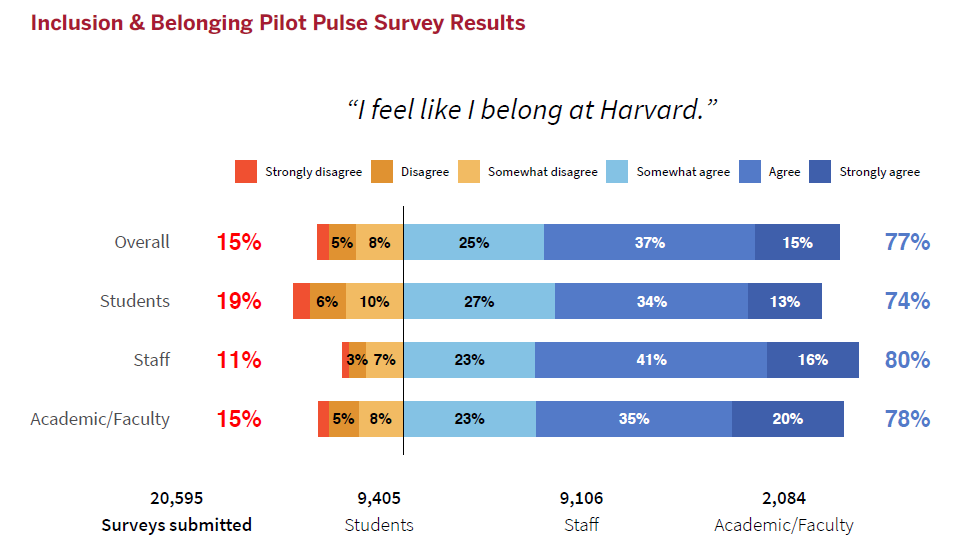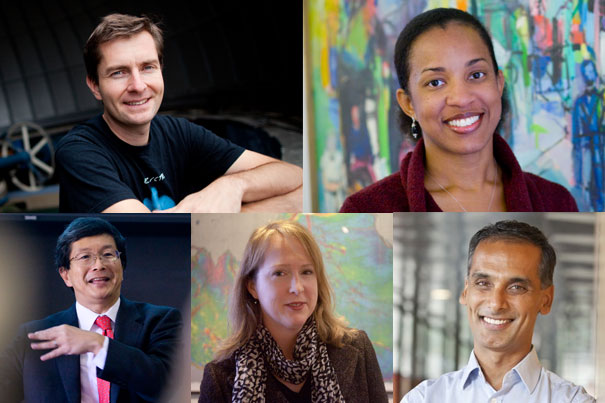Harvard Food for Thought is an innovative initiative designed to foster meaningful dialogue among students at Harvard University. By blending delicious meals with important conversations, this program creates a welcoming environment where diversity conversations can flourish. During these student events, participants explore pressing issues and personal experiences, all while sharing food and perspectives. Engaging speakers, like Professor Michael Sandel, guide these intercultural discussions, encouraging honesty and reflection among attendees. As students connect over shared meals, they not only satisfy their appetites but also deepen their understanding of one another’s backgrounds and viewpoints.
The concept of Food for Thought embodies the essence of academic and social engagement at Harvard University, presenting a unique avenue for intercultural exchange. This gathering promotes vibrant discussions around diversity, aiming to bridge gaps and build relationships among students of varying backgrounds. Participants partake in a communal dining experience meant to spark dialogue and encourage a deeper understanding of complex societal issues. Through these collaborative events, students learn the importance of perspective-sharing and the value of authentic conversations. Food serves as both a facilitator and a metaphor for the rich tapestry of ideas and identities that define the Harvard experience.
The Role of Food in Fostering Dialogue at Harvard University
At Harvard University, food serves as more than just sustenance; it acts as a catalyst for meaningful dialogue. Events like ‘Food For Thought’ highlight this intersection, where students not only enjoy a meal but also engage in substantial conversations that tackle pressing issues. Such gatherings create an inclusive environment, drawing participants from diverse backgrounds, eager to share their unique perspectives amidst a shared dining experience. The ambiance of sharing a meal paves the way for open dialogues, where students feel more at ease to express their opinions, particularly on sensitive topics such as cultural identity or global conflicts.
The concept of using food to enhance discussions is integral to creating intercultural understanding among students. This approach echoes the sentiment that food is a universal language that can bridge gaps created by cultural differences. As these students come together to share both meals and thoughts, they cultivate a rich tapestry of ideas and emotions, fostering not only empathy but also deeper connections amongst peers. The conversations that arise during these meals reflect a microcosm of societal issues, allowing students to practice dialogue in a safe and supportive atmosphere.
Harvard’s Initiative for Diversity Conversations
Harvard’s commitment to fostering diversity conversations, particularly through the ‘Our Harvard’ initiative, highlights the university’s recognition of the importance of dialogue in a multicultural environment. This initiative aims to connect students from various backgrounds, encouraging them to share their experiences and challenges when it comes to navigating their identities on campus. By pairing students for coffee chats or hosting larger discussions, ‘Our Harvard’ creates spaces where voices can be heard and understood, making diversity an active part of campus life rather than just a concept to celebrate.
Events centered around diversity conversations often address the complexities surrounding issues like the Israel-Palestine conflict or personal identity struggles. This level of vulnerability requires bravery from participants and sets the tone for authentic dialogue. With figures like Professor Michael Sandel moderating these events, students are guided to engage thoughtfully, ensuring that discussions extend beyond surface-level interactions. Instead, they delve deep into the societal implications of their conversations, promoting understanding and coexistence in an increasingly polarized world.
Navigating Difficult Conversations on Campus
Difficult conversations, especially around contentious topics such as international conflicts or identity politics, are often avoided for fear of conflict. However, at events like ‘Food For Thought’, students at Harvard University are encouraged to confront these challenges head-on. The willingness to engage in these discussions is a testament to the community’s commitment to inclusivity and understanding. Students like Nim Ravid and Angie Gabeau exemplify this courage, advocating for deeper connections across differences, despite the discomfort that may arise during these conversations.
Moreover, by fostering an atmosphere where students feel safe to express differing opinions, Harvard University helps cultivate resilience and empathy among its students. The experiences shared during these discussions are often personal and profound, making it imperative that participants listen actively and respond thoughtfully. This process not only aids in understanding diverse perspectives but also promotes personal growth and unity within the community. Emphasizing the importance of respect and openness allows students to tackle divisive subjects, ensuring that their dialogues remain constructive and enriching.
Building Community Through Shared Experiences
Shared experiences, particularly through food and conversation, are vital in building a cohesive community at Harvard. Events like ‘Food For Thought’ demonstrate the power of collective gatherings, where students can enjoy meals together while engaging in meaningful dialogue. Such events are instrumental in breaking down barriers, allowing students to connect over common interests, challenges, and aspirations. They provide an environment where cultural appreciation and curiosity flourish, alongside an understanding of one another’s backgrounds and experiences.
These shared experiences extend beyond the dining hall, as they serve as a platform for students to form lasting friendships and alliances. By participating in discussions that explore cultural nuances and shared values, students can move past superficial acquaintance and foster deeper, more authentic relationships. This communal approach supports the vision of creating a welcoming environment at Harvard where diversity is celebrated, and genuine connections thrive, ultimately leading to an enriched campus experience.
The Impact of Intercultural Discussions on Student Growth
Intercultural discussions at Harvard University are crucial in shaping the growth and development of students. Engaging with peers from different cultures during events such as ‘Food For Thought’ allows students to confront their preconceptions and biases. These conversations encourage individuals to question their perspectives, leading to greater self-awareness and empathy. When students hear firsthand accounts of experiences vastly different from their own, they are compelled to expand their understanding of the world and their place within it.
Moreover, the courage to engage in challenging discussions builds critical thinking skills that are essential for future leaders. Understanding diverse viewpoints equips students to navigate a complex global landscape with sensitivity and insight. By fostering a culture of dialogue and openness, Harvard not only prepares students for academic excellence but also instills in them the values of respect, compassion, and collaboration. These traits will serve them well in their personal and professional lives, enabling them to contribute positively to society at large.
Celebrating Diversity While Promoting Inclusion
Harvard University’s approach to diversity is not merely celebratory; it integrates the notion of inclusion into everyday campus life. Events like ‘Food For Thought’ exemplify how this approach transcends tokenistic celebrations of diversity by actively engaging students in conversations that matter. This creates an atmosphere where students can explore their identities and views without fear of rejection, thus promoting a deeper sense of belonging within the community.
The initiative recognizes that inclusivity does not mean erasing differences but rather embracing them while finding common ground. By facilitating dialogues about identity, culture, and varying worldviews, the university highlights the importance of listening and understanding in a diverse society. This focus on inclusion, combined with cultural celebration, lays the foundation for a campus culture where differences are acknowledged and valued, ultimately fostering a climate of respect and collaboration.
Transformative Potential of Food and Dialogue
Food has a transformative potential that extends beyond hunger; it can foster community and create dialogue among disparate groups. At Harvard, events like ‘Food For Thought’ leverage this potential by pairing meals with critical discussions, allowing students to bond over shared culinary experiences while navigating complex social issues. The power of food to create a comfortable setting for dialogue encourages candid conversations, enabling students to express their perspectives freely and openly.
This transformation is particularly significant in a university setting, where diverse student populations often face barriers to connection. By integrating food with dialogue, Harvard University cultivates an environment where learning through shared experiences becomes the norm. The results are profound, as students learn not only to appreciate cultural differences but also to collaborate in crafting solutions to pressing issues, thus nurturing a sense of collective responsibility and unity.
Student-Led Initiatives for Intercultural Connection
Student-led initiatives at Harvard University play a vital role in promoting intercultural connection and understanding among peers. Programs like ‘Our Harvard’ encourage students to take ownership of their experiences and foster relationships across diverse backgrounds. Initiatives that are designed to bring students together for discussions or shared activities not only empower leadership among participants but also strengthen community ties, creating lasting impact beyond the university environment.
Through these initiatives, students are encouraged to explore their identities while actively engaging with others’ experiences. These platforms serve as important avenues for dialogue, allowing students to share their stories and perspectives in safe and supportive spaces. By nurturing an environment that values diversity and inclusivity, Harvard encourages students not only to celebrate their differences but also to leverage them as opportunities for growth and mutual understanding.
The Importance of Vulnerability in Dialogue
Vulnerability plays a crucial role in fostering meaningful dialogue among students, especially in diverse settings like Harvard. When participants approach conversations with openness and a willingness to share personal experiences, it creates a rich tapestry of insights and perspectives. This vulnerability encourages others to engage on a deeper level, breaking down walls of misunderstanding and allowing genuine connections to form. Events like ‘Food For Thought’ highlight this aspect, as students are encouraged to share their fears, hopes, and experiences candidly, facilitating authentic and impactful dialogue.
Moreover, the act of being vulnerable in conversations promotes empathy and understanding, essential elements in any diverse community. As students share their stories, they build trust and rapport, paving the way for stronger relationships and collaborations. Encouraging vulnerability leads to deeper discussions about complex issues such as identity, culture, and values, making it imperative for initiatives like ‘Our Harvard’ to prioritize this approach in their mission to cultivate unity within diversity.
Frequently Asked Questions
What is the purpose of the Harvard Food for Thought event?
The Harvard Food for Thought event aims to foster intercultural discussions and dialogues among students, allowing them to share their perspectives on important issues while enjoying a meal together. Organized by the student group ‘Our Harvard’, this initiative encourages students to connect across differences, promoting a deeper understanding of various identities and experiences.
How does Harvard University facilitate diversity conversations through Food for Thought?
Harvard University promotes diversity conversations through the Food for Thought initiative by creating a safe space for students from various backgrounds to engage in meaningful discussions about sensitive topics. Led by facilitators like Professor Michael Sandel, these events encourage openness and honesty, fostering connections that transcend cultural and ideological differences.
Who moderates the conversations at Harvard’s Food for Thought events?
The conversations at Harvard’s Food for Thought events are often moderated by prominent faculty members, such as Professor Michael Sandel. His role is to guide the dialogue, ensuring that discussions around complex issues remain productive and respectful, while promoting understanding and engagement among students.
What are some topics discussed at Harvard’s Food for Thought gatherings?
Topics discussed at Harvard’s Food for Thought gatherings include personal experiences with identity, national conflicts like the Israel-Palestine issue, and the challenges of building friendships across cultural divides. These conversations aim to tackle tough issues and enhance understanding among students of diverse backgrounds.
How does the Food for Thought initiative align with Harvard University’s goal of promoting community?
The Food for Thought initiative aligns with Harvard University’s objective of promoting community by encouraging students to share their stories and experiences over meals. It facilitates dialogue that aims to build connections, break down barriers, and support a culture of inclusivity and empathy within the Harvard community.
What role does food play in Harvard’s Food for Thought events?
Food plays a central role in Harvard’s Food for Thought events, serving as a communal experience that brings students together. The act of sharing a meal enhances the dialogue, making participants feel more relaxed and open to discussing challenging topics in a supportive environment.
How can students get involved with initiatives like Food for Thought at Harvard University?
Students interested in getting involved with initiatives like Food for Thought at Harvard University can join student organizations such as ‘Our Harvard’, participate in events, or attend dialogues designed to engage with peers from diverse backgrounds. Getting involved fosters a sense of community and supports the mission of promoting intercultural understanding.
What impact has Food for Thought had on participants at Harvard?
Food for Thought has had a significant positive impact on participants at Harvard, as it has encouraged vulnerable and honest communication among students. Many participants express that these discussions help break down feelings of isolation, foster friendships, and create a culture of understanding and collaboration on campus.
| Date | Event Name | Objective | Key Takeaways | Quotes |
|---|---|---|---|---|
| April 1, 2025 | Food For Thought: Our Harvard College | To foster conversations across differences among Harvard students. | 1. Creation of a safe space for discussions. 2. Encouragement of meaningful dialogue on sensitive topics like the Israel-Palestine conflict. 3. Acknowledgment of the struggles in building friendships across diverse backgrounds. |
‘It was the most vulnerable and honest I’ve ever heard Harvard students communicating with each other.’ – Nim Ravid ‘If you can discuss the hottest topic in the public discourse right now and still be vulnerable with people who may not agree with you, then other conversations will seem much less daunting.’ – Angie Gabeau. |
| April 1, 2025 | Food For Thought: Our Harvard College | To foster conversations across differences among Harvard students. | 1. Creation of a safe space for discussions. 2. Encouragement of meaningful dialogue on sensitive topics like the Israel-Palestine conflict. 3. Acknowledgment of the struggles in building friendships across diverse backgrounds. |
‘It was the most vulnerable and honest I’ve ever heard Harvard students communicating with each other.’ – Nim Ravid ‘If you can discuss the hottest topic in the public discourse right now and still be vulnerable with people who may not agree with you, then other conversations will seem much less daunting.’ – Angie Gabeau. |
Summary
Harvard food for thought reflects the ongoing efforts to create an inclusive environment where students can engage in meaningful dialogues about complex issues. The recent event, spearheaded by students at Harvard, showcased how vulnerable discussions can pave the way for understanding and connection. By acknowledging differences and fostering open communication, participants are encouraged to transcend cultural barriers and strive for growth in both personal and academic spheres. This initiative not only aims to enrich the Harvard community but also serves as a beacon for other institutions seeking to cultivate a spirit of collaboration and unity.




